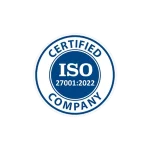Last Updated on 2 years ago by
When it comes to building a website, understanding the associated costs is crucial for making informed decisions. In the UK, website costs can vary depending on several factors. From the functionalities of different types of websites to the impact of design and user experience, various aspects contribute to the overall price. Additionally, domain registration and hosting services play a significant role in website development expenses.
Website functionalities are an essential consideration. Different types of websites, such as informational sites, e-commerce platforms, and blogs, have unique functionalities that impact their costs. For example, an e-commerce site requires payment gateway integration and inventory management features, while a blog may prioritize content management systems and social media integration.
The impact of design and user experience cannot be underestimated. Custom designs with intricate visual elements and user experience considerations may require the expertise of a professional web designer, resulting in higher costs compared to pre-designed templates.
Furthermore, domain registration and hosting services are essential steps in website development. Registering a domain can vary in price depending on the domain extension and provider. Similarly, hosting services offer different plans with varying costs based on factors such as storage, bandwidth, and additional features.
By understanding the various cost components, businesses and individuals can navigate the website development process effectively and make informed choices that align with their budget and objectives. In this process, you can work together with a website design agency.
Primary Factors That Influence the Cost of Building a Website
When it comes to building a website, several primary factors directly influence the overall cost. Understanding these factors is essential for planning an efficient and cost-effective website development project.
- Website Complexity: The complexity of a website, including its functionalities and features, plays a significant role in determining its cost. More complex websites require additional development time and expertise, leading to higher costs. For example, an e-commerce website with advanced inventory management, payment gateway integration, and personalized user accounts will likely have a higher development cost compared to a simple informational website.
- Functionalities and Customization: The functionalities and customization requirements of a website also impact its cost. The more functionalities a website requires, such as contact forms, booking systems, or user registration, the higher the development costs. Additionally, customization, such as unique design elements and interactive features, can increase the overall price. It is important to carefully consider the necessary functionalities and customization options to avoid unnecessary expenses.
- Integrations: Integrating third-party services or APIs into a website, such as payment gateways or social media platforms, can add to the development cost. These integrations often require additional development time and expertise, resulting in higher expenses. It is essential to assess the need for integrations and their impact on the overall website cost.
- Content Management System (CMS): The choice of content management system (CMS) also influences the cost of building a website. Custom CMS development or using a popular CMS like WordPress both have cost implications. Custom CMS solutions may require more investment upfront due to their tailored development, while popular CMS platforms often have ongoing maintenance and security costs. Assessing the specific needs of the website and evaluating the cost implications of different CMS options is crucial for budgeting effectively.
A Detailed Breakdown of Website Development Costs
When it comes to website development, understanding the breakdown of costs is crucial for making informed decisions. The following factors play a significant role in determining the overall cost:
- Hourly Rates: Website development agencies or freelancers often charge on an hourly basis. The rates can vary based on the expertise and experience of the professionals involved in the project.
- Project Complexity: The complexity of a website project directly affects the development costs. Projects with more functionalities and design intricacies require additional time and resources, resulting in higher prices.
- Development Stages: Website development involves several stages, each contributing to the overall cost. These stages include:
- Design: The creation of a visually appealing and user-friendly website design can be a significant cost driver.
- Coding: The implementation of the design into a functional website requires coding expertise and can impact the overall cost.
- Content Creation: Developing high-quality content, such as text, images, and videos, is essential for engaging users. Content creation costs should be considered as part of the development process.
- Testing: Thorough testing ensures that the website functions as intended, identifying and resolving any bugs or issues. Testing adds to the overall development cost.
- Maintenance: Ongoing maintenance, including regular updates, security patches, and technical support, is necessary to keep the website running smoothly. Maintenance costs should be factored into the overall budget.
By considering these factors and their impact on website development costs, businesses and individuals can better plan their budgets and ensure the successful creation of a website that meets their needs and requirements.
Cost Comparisons: DIY Website Builders vs. Professional Design
When it comes to building a website, one of the key decisions is whether to opt for a DIY website builder or professional web design services. Both options have their own pros and cons, as well as cost implications that need to be considered. Let’s explore the cost comparisons between these two approaches.
Expenses Associated with DIY Platforms
DIY website builders offer affordable options for those looking to build a website on a budget. These platforms often provide easy to-use drag-and-drop editors, pre-designed templates, and basic functionalities. However, it’s important to note that these DIY platforms may come with limitations and additional expenses. While the initial cost may seem lower, there can be hidden charges for custom domains, premium templates, or advanced functionalities. These extra expenses can add up over time and impact the overall cost of maintaining and expanding your website.
Calculating the Value of Professional Web Development
On the other hand, professional web design services offer a higher level of customization, expertise, and ongoing support. Although the upfront cost may be higher compared to a DIY platform, the value provided by professional web development can justify the investment. With professional web design, you can expect a unique and tailored website that aligns with your brand identity and business objectives. Additionally, professional web developers have the skills and knowledge to optimize your website for better user experience, search engine optimization, and long-term scalability. The quality of the final product and the potential for increased conversions and business growth make professional web design a compelling option.
In the end, the choice between a DIY website builder and professional web design depends on your specific needs, budget, and long-term goals. Considering the expenses associated with DIY platforms and the value offered by professional web development, it’s crucial to weigh the pros and cons and make an informed decision that aligns with your business requirements and budget constraints.
Understanding the Additional Costs of Website Components
In addition to the fundamental costs of building a website, there are various additional components that may involve extra expenses. These components play a crucial role in enhancing the functionality and security of your website. It’s important to understand these costs and factors when budgeting for your website development project.
Plugins and Themes
To add additional functionalities to your website, you can utilize plugins and themes. However, it’s worth noting that some plugins and themes come at an extra cost. While there are free alternatives available, premium plugins and themes often offer more advanced features, superior support, and regular updates. Depending on your website requirements, investing in premium options can be a worthwhile consideration.
SSL Certificates
SSL certificates are essential for ensuring secure communication between your website and its users. Basic SSL certificates are often included in hosting plans, providing a certain level of security. However, if you require more advanced SSL options for e-commerce websites or websites handling sensitive information, there may be additional costs involved. Investing in higher-level SSL certificates can provide greater encryption and build trust with your website visitors.
Premium Features
Depending on the specific functionalities you require, certain premium features may be necessary for your website. These can include advanced analytics, membership systems, live chat support, or other specialized tools. Premium features often involve subscription or add-on costs, which should be factored into your overall website budget. Consider the value these premium features can bring to your website and whether they align with your business objectives.
The Price of Content Creation and Management for Your Website
When it comes to building and maintaining a successful website, content creation and management play a crucial role. Website owners must carefully consider the costs involved in creating high-quality content and ensuring its ongoing management. Whether you choose in-house content development or outsourcing to content creators, it’s important to understand the financial implications and the impact on your website’s success.
In-House vs. Outsourced Content Development
Creating content for your website can be done in-house or outsourced to content creators. In-house content development involves hiring dedicated staff or utilizing existing resources within your organization. This option allows for more control over the content creation process and ensures that your team has a deep understanding of your brand and its messaging. However, it may require additional investment in hiring and training.
On the other hand, outsourcing content development to freelance writers or content agencies can be a cost-effective solution. By tapping into external expertise, you can access a wider pool of talent and benefit from their specialized knowledge. Outsourcing content creation allows you to focus on other aspects of your business while professionals handle the content production. However, it’s essential to choose reliable and reputable content creators who can deliver high-quality work that aligns with your brand image.
Maintaining Quality Content: Ongoing Costs
Creating quality content is not a one-time investment but an ongoing process. Website owners should consider the ongoing costs of content management, which include creating new content, updating existing content, and optimizing it for search engines. The frequency and quality of content updates can greatly impact these costs. The costs associated with maintaining quality content include:
- Content Creation: Whether you choose in-house or outsourced content development, there will be costs associated with creating new content. This can include researching, writing, editing, and proofreading.
- Content Updates: To keep your website fresh and relevant, you’ll need to regularly update your existing content. This may involve revising information, adding new data, or incorporating the latest industry trends.
- Content Optimization: Optimizing your content for search engines is crucial for improving your website’s visibility and attracting organic traffic. This may require keyword research, meta tag optimization, and other SEO techniques.
It’s important to allocate a budget for ongoing content management costs to ensure that your website continues to deliver valuable and engaging content to your audience.
Navigating SEO and its Pricing Impact on Building a Website
Investing in Search Engine Optimization (SEO) is crucial for enhancing a website’s visibility in search engine rankings and driving organic traffic. However, it’s important to consider the pricing implications of SEO when building a website.
- Initial SEO Analysis and Strategy Planning: Before implementing SEO strategies, conducting an initial analysis is essential. This analysis involves identifying target keywords that align with the website’s goals, optimizing the website’s structure, and conducting competitor analysis. This initial phase sets the foundation for effective SEO implementation.
- Ongoing SEO Efforts and Monthly Expenditures: Achieving and maintaining a strong online presence requires ongoing SEO efforts. These efforts may include content optimization, link building, technical SEO improvements, and monitoring keyword rankings. The monthly expenditures for SEO can vary based on factors such as the level of competition in the industry, the size and complexity of the website, and the specific goals of the SEO campaign. It is important to ensure that the budget allocated for ongoing SEO efforts aligns with the website’s needs and objectives.
- By investing in comprehensive SEO strategies, businesses can enhance their website’s visibility, attract organic traffic, and ultimately increase their online presence and conversions.
Prioritizing Website Security: Expected Costs and Considerations
Ensuring website security is crucial for protecting user data and maintaining business credibility. When planning the budget for website development, it is important to consider the costs associated with implementing robust security measures. Here are the expected costs and key considerations for website security:
1. Website Security Costs
Website security costs can vary depending on the level of protection required. It is essential to invest in the following security measures:
- SSL Certificates: SSL certificates encrypt the communication between a website and its users, ensuring that sensitive information is secure. Prices for SSL certificates can range from free to hundreds of pounds annually, depending on the type and level of validation required.
- Firewalls: Firewalls protect websites by monitoring and controlling incoming and outgoing network traffic. Prices for firewalls can vary depending on the complexity of the website and the level of protection needed.
- Malware Scanning Tools: Malware scanning tools help detect and remove malicious software from the website. The cost of malware scanning tools can vary based on the provider and the level of scanning and protection needed.
- Data Backup Services: Regularly backing up website data is essential in case of data loss or security breaches. The cost of data backup services can vary based on the storage capacity and frequency of backups.
2. Ongoing Security Maintenance
Website security is not a one-time investment. Regular security maintenance is necessary to stay protected against evolving threats. Ongoing security maintenance may include:
- Monitoring for Vulnerabilities: Regularly monitoring the website for potential vulnerabilities and security risks.
- Applying Security Patches: Installing updates and security patches to address identified vulnerabilities.
- Keeping Software Up to Date: Ensuring that all software and plugins used on the website are kept up to date with the latest security patches.
- The cost of ongoing security maintenance can vary depending on the complexity of the website and the frequency of updates required. It is important to allocate a portion of the budget for ongoing security measures to protect the website and its users.
By prioritizing website security and factoring in the associated costs, businesses can build a secure online presence, safeguard user data, and maintain their reputation.
E-commerce Website Specifics: Functionality Cost Implications
Building an e-commerce website involves additional costs compared to informational sites. When setting up an online store, there are several cost considerations that need to be taken into account.
- Platform and Transaction Costs: E-commerce platforms like Magento, WooCommerce, or Shopify offer the necessary tools and functionalities for online store setup. These platforms may have upfront fees or monthly subscription costs, depending on the chosen plan. Additionally, transaction fees may apply based on the payment gateway used and the volume of sales processed through the website.
- Integrating Payment Gateways and Security Features: E-commerce websites require secure payment gateways to process transactions and ensure customer data protection. Implementing secure payment gateways and adhering to industry-specific security standards may incur additional costs. Depending on the specific requirements of the online store, specialized third-party services or plugins may be needed, adding to the overall expenses.
Considering the costs associated with platform selection, transaction fees, payment gateways, and security features is crucial when budgeting for an e-commerce website. By understanding and planning for these functionality cost implications, businesses can effectively manage their e-commerce website development expenses.
In conclusion, understanding the cost breakdown of building a website in the UK is essential for making informed decisions and maximizing your investment. Several factors influence website costs, including the type of website, design complexity, functionalities required, integrations, and the choice of a content management system.
It is crucial to consider additional costs such as domain registration, hosting, plugins, themes, SSL certificates, and premium features to ensure your website meets your specific needs.
While DIY website builders offer affordability, they may come with limitations and hidden charges. Professional web development services provide added value through customization, expertise, ongoing support, and scalability, justifying their higher costs.
By thoroughly understanding the cost breakdown and considering all factors, you can make an informed decision that aligns with your budget and business goals in creating a successful website that delivers a great user experience and supports your online presence in the long term.












